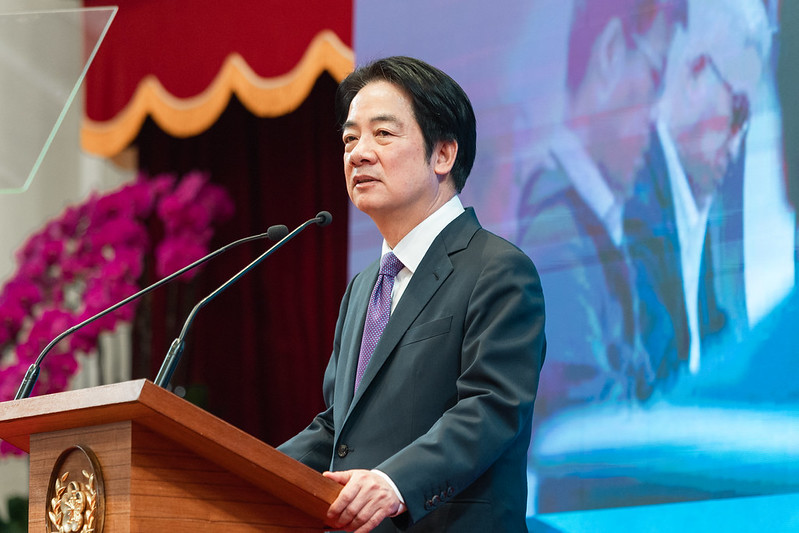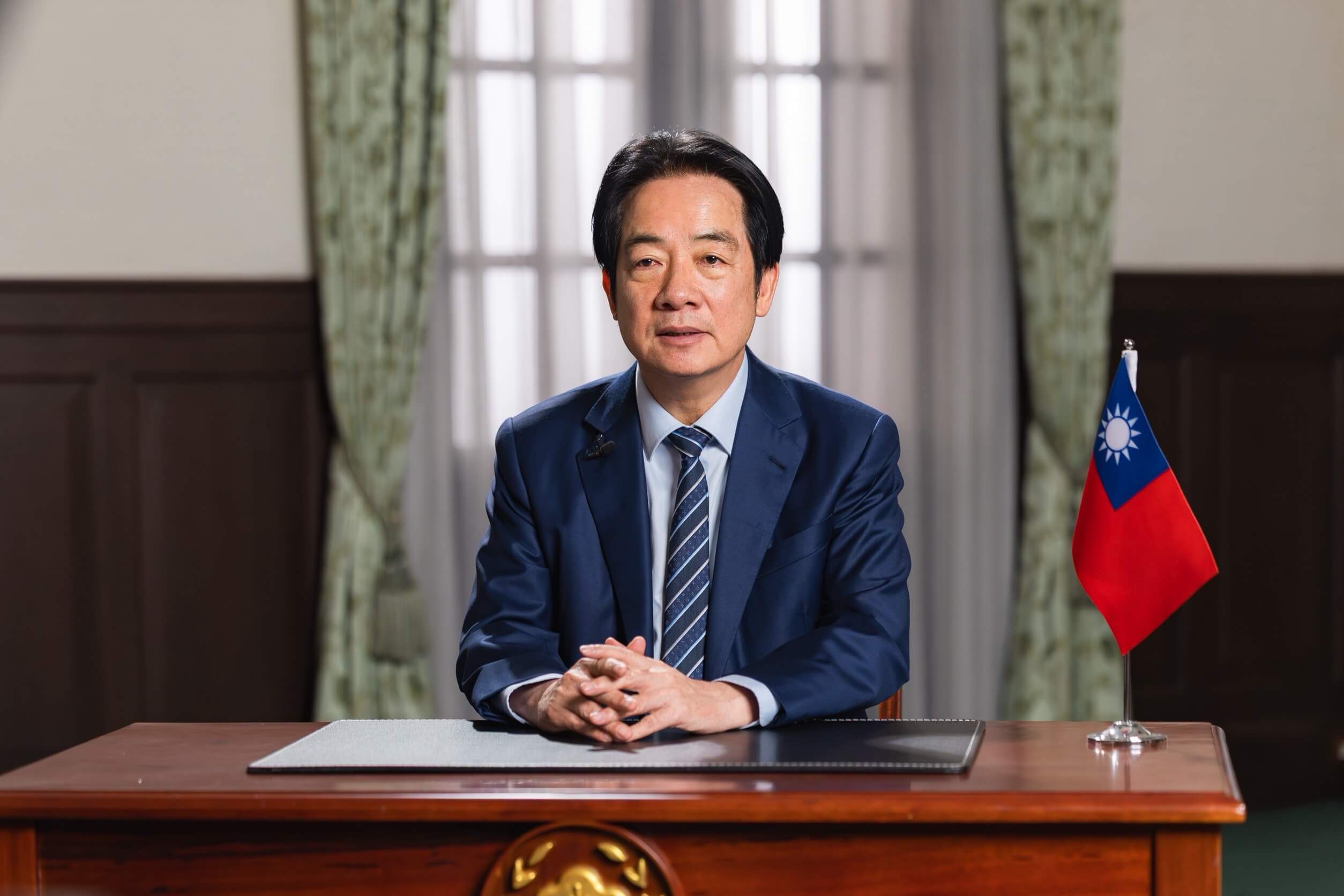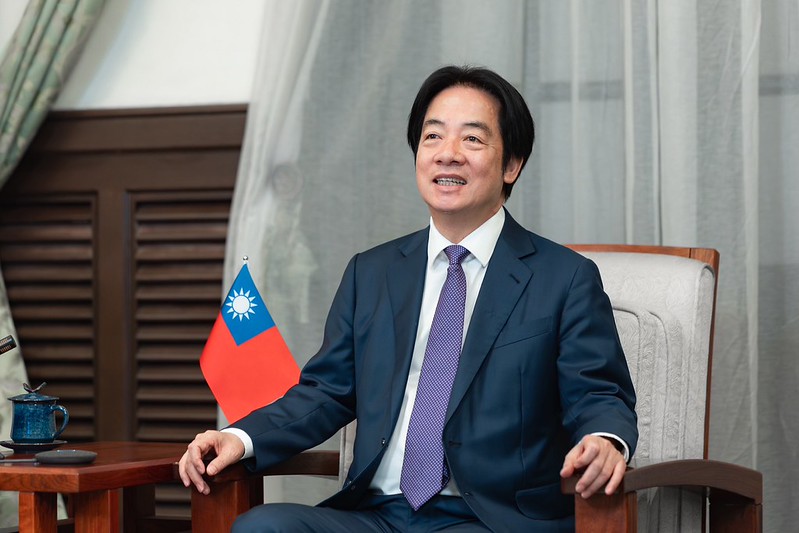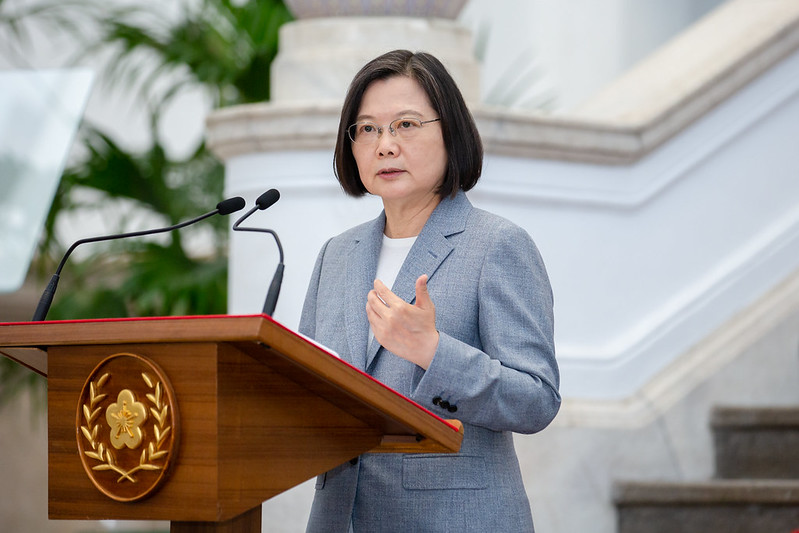News & activities
 News releases
News releases
During remarks regarding international trade issued in the Presidential Office Building Entrance Hall today, President Tsai Ing-wen said that she has instructed the relevant ministries to set permissible ractopamine residue levels for imported pork and ease restrictions on the import of beef from US cattle aged 30 months or older based on the prerequisite of ensuring the health of our citizens, and in accordance with scientific evidence and international standards.
President Tsai emphasized that the government, following comprehensive assessment, has concluded that further easing restrictions at this point on imports of beef and pork from the US is a decision that is consistent with our overall national interests and future strategic development goals. It is also a decision that promotes Taiwan-US relations, satisfies food safety standards, and ensures that the incomes of pig farmers are not adversely affected. The government, she said, will implement stringent safety controls, strengthen quarantine and inspection procedures for imported meat products, and implement food product labeling regulations. She also asked everyone to take this courageous step forward together so that the nation can move toward a better future.
A translation of the president's remarks follows:
Today, we want to make a key decision for Taiwan to resolve a long-standing issue.
Regarding importing beef and pork from the United States, after rigorous assessments over the past few years, I have already instructed the relevant ministries, based on the prerequisite of ensuring the health of our citizens, and in accordance with scientific evidence, and international standards to set permissible ractopamine residue levels for imported pork, and ease restrictions on the import of beef from US cattle aged 30 months or older.
This decision is based on our national economic interests and consistent with our overall strategic goals for the future.
Taiwan's economy now stands at a historical turning point. We must take advantage of this strategic opportunity to push past obstacles, find a viable path forward, and embrace new global economic circumstances.
As we know, the US-China trade dispute and the current pandemic have brought structural changes to the global economy, and accelerated and expanded the realignment of global supply chains.
Facing these major economic changes, Taiwan has undertaken vigorous economic reforms and responded appropriately to control the pandemic. We have therefore not just held steady, but our economic growth rate is once again number one amongst the Four Asian Tigers. The domestic stock market has also hit a new historical high.
At the same time, we have welcomed the largest wave of return investments by domestic firms in decades. More and more multinational enterprises see potential in Taiwan and have increased their investments. Taiwan's economy has transformed and we are embracing the opportunities of the future.
Moving forward, Taiwan must become a critical force in the realignment of global supply chains. We have to accelerate the formation of links with economies around the world, and particularly forge a closer bond with our strongest strategic partner and global economic leader, the US.
Taiwan is a significant and critical trade partner of the US, and Taiwan and American businesses have close cooperative relationships. But it is undeniable that our relevant regulations, which are not yet in line with international norms, have become an obstacle to furthering Taiwan-US economic cooperation.
I trust that if we can take this key step regarding US beef and pork issues, it will be an important starting point for more comprehensive Taiwan-US economic cooperation. In the future, we can develop a more dynamic and vigorous economic and trade strategy. For industries, especially traditional industries, that have been impacted over the past two years by the US-China trade conflict and the pandemic, this is an important opportunity.
Today's decision is also one that can strengthen Taiwan's relationship with the US. Former Presidents Chen Shui-bian and Ma Ying-jeou made commitments to the US with respect to resolving US beef and pork import issues. Although both presidents made great efforts under the circumstances they were faced with, they were only able to resolve part of this issue.
This caused the international community to question the Taiwan government's ability to resolve problems. The level of trust in our ability to conduct trade negotiations has also been questioned. This not only impacted Taiwan-US trade relations, but has also caused other nations to have doubts about Taiwan's participation in regional trade agreements like the CPTPP, and question our commitment to resolving difficult trade issues.
At this very moment, Taiwan-US relations are at their strongest level in decades. Ranging from Congress to the US business community, there are clear expectations of building deeper economic and trade ties with Taiwan, which includes the potential of a Taiwan-US bilateral trade agreement (BTA). This is an ideal opportunity for Taiwan's economic and trade development. However, we must display the commitment to both facing up to and resolving issues.
Of course, we know that we still have a way to go before negotiating and signing a trade agreement. But a precondition for negotiations is to rationally manage trade issues, and open up to other countries on a mutual basis, based on the same international standards.
Today's decision also complies with international food sanitation standards. The government is responsible for ensuring that all foodstuffs in the marketplace comply with national food sanitation standards. On that point, we will not make any compromises or concessions.
Before 2012, there were no international regulatory standards for ractopamine levels. Concerns had also been raised about US beef due to bovine spongiform encephalopathy (BSE). We did at one stage have reservations about the importation of beef and pork containing ractopamine.
In July 2012, however, following the drafting of international standards and subsequent risk assessments, greater scientific consensus has emerged. The Democratic Progressive Party, the opposition party at the time, therefore adjusted its stance to that, and with the protection of public health as a prerequisite, the government should establish regulations for imported foodstuffs based on scientific evidence and international standards. That was the position I took during the 2016 presidential election.
We have not changed this principle, nor have we compromised. However, circumstances have changed. Previously unfulfilled conditions have gradually been met, which gives us the space to decide to further open the market.
The first factor is that there is sufficient risk assessment data regarding ractopamine, and ample scientific evidence has accumulated over time. Since we opened the market in 2012, US beef has not created any food safety issues in Taiwan, while consumption of US beef by our citizens has grown significantly.
Neighboring countries including Japan, Korea, and Singapore have all opened up to imports of pork containing small amounts of ractopamine. The government agencies in Taiwan also conducted health risk assessments of pork and beef products containing ractopamine in 2012, and 2019. Their findings all showed that there is no health safety risk when ractopamine levels are below the limit set by Codex Alimentarius.
In addition, since 2013, the US has been listed by the World Organization for Animal Health (OIE) as having "negligible risk" for BSE. Similarly, in 2019 the Ministry of Health and Welfare conducted a rigorous risk assessment and also concluded that there is no safety risk.
However, the government is very aware that people take food safety seriously. Regarding future imports of US beef and pork, I guarantee that the government will implement stringent safety controls.
We will strengthen quarantine and inspection procedures for imported meat products. We will implement food product labeling regulations, indicating country of origin and providing consumers with sufficient information to make choices. All food product vendors, from those selling non-packaged and packaged foods, to retail markets, restaurants, and boxed-meal businesses, will have to provide consumers with comprehensive information about their products to ensure food safety.
Today's decision will also ensure that Taiwan's pig farmers will not be negatively impacted. Please rest assured that the government will not sacrifice the rights and interests of Taiwan's pig farmers.
I know there will be concerns that Taiwan's domestic pig farming industry could be impacted after US pork imports are permitted. I would like to remind everyone that, although we permitted pork importation at an earlier phase, currently domestic pork consumption is primarily from domestic sources. Imported pork accounts for only 10%, with Canada and Spain as the largest exporters to Taiwan, so the market share for US pork remains low. This shows that the previous phase of opening the market to US pork did not have a major impact on the industry.
In addition, over the last few years, we have proactively bolstered our pig farming industry. This year we accomplished something that every government of the last 24 years could not. Aside from having Taiwan removed from the list of zones with foot and mouth disease, we also successfully blocked the transmission of African swine fever into Taiwan, making Taiwanese pork eligible for export.
Domestic pork has a 90% market share in Taiwan and is becoming increasingly competitive. However, we will still go ahead and establish a NT$10 billion "Pig Farming Industry Fund" to ensure that pig farming livelihoods are not affected.
We will also work to make our pig farming industry more competitive, allowing Taiwan's pig farming industry to reach new milestones following our success in stopping foot and mouth disease and African swine fever. Currently, our pork can be exported to Singapore and Macau. Moving forward we will do our utmost to enter other markets, allowing our pork to be sold around the world and making our pork industry more internationally competitive.
With regard to the importing of beef and pork from the United States, in terms of food safety, our principles for permitting importation are scientific evidence, international standards, and clear labelling. In terms of industry, our goals are to guarantee pig farmers' incomes, make the domestic pork export industry more competitive, and open up to the international market.
In the Executive Yuan press conference that will take place shortly, officials from the responsible ministries will explain concrete details and relevant measures to everyone.
Finally, I want to once again emphasize that we have conducted a comprehensive assessment and concluded that further easing restrictions at this point on imports of beef and pork from the US is a decision that is consistent with our overall national interests and our strategic development goals. It is a decision that promotes Taiwan-US relations, satisfies food safety standards, and ensures that the incomes of pig farmers are not adversely affected.
This marks an opportunity for Taiwan to move forward in engaging with the international community. We have made this decision and I hope that everyone can stand together with us to take this courageous step forward. Our nation will certainly stride toward a better future.









